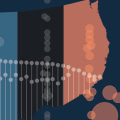Telemedicine is a rapidly expanding field in California, with the state's legislators and medical board providing regulatory support for its practice. Under California's telehealth laws, providers can offer services outside the state as long as they are licensed by the state in which the patient resides. Physicians who use telehealth technologies to provide care to patients located in California must be licensed in California, and any dentist involved in providing services must make their name, telephone number, office address, and California state license number available to the patient before the provision of services. MFTs with an accrediting degree who have maintained an active license to practice in any other state can pass the California ethics exam if they meet certain requirements.
All professionals licensed in California under Division 2 of the state's Healing Arts Act can provide telemedicine care to patients. Licensees who offer telehealth to California patients must be licensed in California, although they may not need to live in the state. The visit will also include a face-to-face meeting between an FQHC patient and a comprehensive perinatal doctor, as defined in section 51179.7 of Title 22 of the California Code of Regulations, who will provide comprehensive perinatal services, a four-hour day care center for adults and any other provider identified in the definition of the state plan for visiting the FQHC. A patient cannot be “established” through an audio-only synchronous interaction, unless the visit is related to a “confidential service”, as defined in the California Civil Code, section 56.05, subdivision (n), or if the patient requests “audio only” or does not have access to video.
Telemedicine began to gain traction in California in 1992, when the University of California at Davis launched a telemedicine program. There are no legal prohibitions on the use of technology in the practice of medicine, as long as it is practiced by a California licensed physician and complies with state and federal privacy laws.






